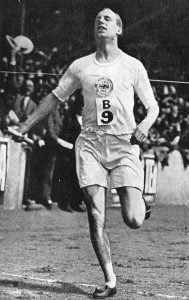Time for one of my favorite things to do: briefly review books. It’s tough to do this in the midst of the academic semester. I’ve got two critically acclaimed bestsellers for you today, each of which I review in summary fashion.
 First up is Michael Chabon’s very recent Manhood for Amateurs (HarperCollins, 2009). Chabon is a Pulitzer-Prize winning novelist, an essayist, husband to author Ayelet Waldman, and father of four. He makes his home in Berkeley, California.
First up is Michael Chabon’s very recent Manhood for Amateurs (HarperCollins, 2009). Chabon is a Pulitzer-Prize winning novelist, an essayist, husband to author Ayelet Waldman, and father of four. He makes his home in Berkeley, California.
The text is a collection of Chabon’s essays on aspects of manhood culled from publications like GQ, the New York Times, and Details. Essentially, Chabon traverses the confusing landscape of modern manhood. He writes from a postmodern perspective, seeking to find the irony, beauty, and hypocrisy of men. He is a spiritual person; he attends a Jewish synagogue, and this works its way through his essays.
Like other bestselling contemporary male authors (Bill Simmons, for example), Chabon grounds his exploration of his subject in popular culture. His childhood included much engagement with comics, fantasy tv shows, and the like, and so these things pop up repeatedly in Manhood for Amateurs (currently around #400 on Amazon). I do not have as much affection for this sort of culture and so did not connect with these stories as others might.
Chabon is an excellent prose stylist. He occasionally pushes his language just a word or phrase too far, but in general, his writing is inventive and alive. In terms of his views on manhood, they are, unsurprisingly, quite different from my own. Chabon writes at one point of his decision to carry a “murse”, a chapter that made my stomach turn, as did Chabon’s approach to a number of other subjects, including sex.
Manhood for Amateurs is richly written and insightful. I would not recommend it to young readers or those with sensitive consciences. It is an eloquent statement of a postmodern take on manhood. Of course, in the end, the book struggles to find its footing on what exactly manhood is. Chabon regularly notes that he eschews adherence to a masculine code, though this does not prevent him from offering his own ideas on the subject.
As a Christian, one is left awed by the writer’s gift, moved by a number of his stories (“The Hand on My Shoulder” is haunting), and unconvinced by his conception of manhood. If Chabon gets a number of things right about manhood (including its uncertainty, its beauty, and its propensity for fiery self-destruction), he has lost sight of a sure foundation for manliness, the quarry which only the Word of God can provide.
Nonetheless, this book is worth reading, for those who can handle its mature content. It walks through many of life’s most powerful experiences, illuminates the pain of a broken world, and shows how confused the modern world is about manhood. It is beautifully written and would be a help to the writing Christian community, the prose of which trends toward dull mawkishness on the one hand and iron didacticism on the other.
 Matthew Crawford’s Shop Class as Soulcraft (Penguin, 2009) is another example of shining prose, good ideas, and the ultimate lack of a philosophical/theological foundation for its ideas. Crawford, a PhD graduate of the University of Chicago and motorcycle mechanic in Richmond, Virginia, writes to point out that modern society has devalued the trades, the manual occupations that allow people to get their hands dirty and build things.
Matthew Crawford’s Shop Class as Soulcraft (Penguin, 2009) is another example of shining prose, good ideas, and the ultimate lack of a philosophical/theological foundation for its ideas. Crawford, a PhD graduate of the University of Chicago and motorcycle mechanic in Richmond, Virginia, writes to point out that modern society has devalued the trades, the manual occupations that allow people to get their hands dirty and build things.
His book is quite convincing. Crawford argues that today’s educational zeitgeist militates against shop class and manual work, preferring instead the attainment of a college degree which may or may not actually equip students for meaningful work. Crawford further argues that the modern workplace offers many workers (particularly middle-management) the opportunity not to perform important duties, but to manage workers’ moods. Drawing, quite humorously, on his experience in a DC thinktank, Crawford makes a compelling case for his point.
The author’s background skews toward Stoicism. As a Christian, one is left wondering whether Crawford’s view of the value of work possesses a sure base. The Christian doctrine of the image of God, which imbues all of our activity with meaning, coupled with the Christian doctrine of the necessary glorification of God in all of life and work, seems a much stronger ground upon which to build our conception of labor.
But readers should not miss Crawford’s book (currently around #420 on Amazon). It has reshaped my understanding of the importance of physical work, trades labor, and the modern workplace. In short, I came away from it convinced of the need to both tackle manual challenges and to support tradesmen. Shop-Class as Soulcraft shows that there is great intelligence and value in work done with one’s hands. There is also a great need for skilled craftsmen, though few of us recognize this as we buzz through the technocracy.
We are simply wrong to think of craftsmen as less intellectually able than knowledge workers. We should not send a significant portion of our students to college to earn degrees that will not benefit or fulfill them. Furthermore, the modern workplace, replete with speech codes, is no promised land for young minds. It is, as Crawford shows, filled with passive-aggressive signaling proceeding out of an unsure psychological climate in which no one is sure of their standing, and thus everyone says just enough to cover their tracks and rarely enough to implicate themselves should things go wrong.
Crawford is, as I said, an elegant writer, a deep thinker, and a persuasive apologist for the trades. Those who enjoy cultivating the life of the mind in a variety of fields will benefit greatly from Shop-Class as Soulcraft.











